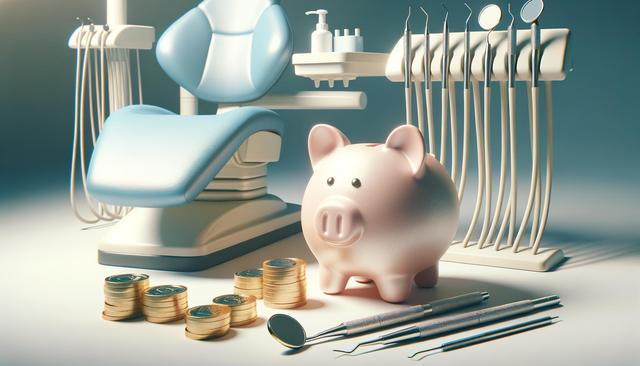Assess Your Financial Situation Honestly
The first step to getting out of debt in 2025 is understanding exactly where you stand financially. Take time to review all your outstanding balances, interest rates, and minimum payments. Create a list of every creditor, the amount owed, and due dates. This clear picture helps you avoid missing payments and builds the foundation for a repayment strategy.
Once your debts are listed, calculate your total monthly income and essential expenses. This allows you to pinpoint how much money is available each month for paying down debt. Many people are surprised to discover how much they’re spending on non-essential items, which can be redirected toward reducing debt.
To ensure accuracy, consider using budgeting apps or personal finance tools that track your spending automatically. These tools can help you:
- Identify unnecessary recurring charges
- Highlight spending trends
- Set realistic repayment goals
By grounding your strategy in a thorough understanding of your finances, you can develop a plan that’s not just ambitious but achievable.
Create a Practical and Focused Repayment Plan
With your financial picture in mind, the next step is to choose a repayment strategy that aligns with your goals and lifestyle. Two popular methods are the debt avalanche and the debt snowball. The avalanche method focuses on paying off debts with the highest interest rate first, which saves money over time. The snowball method, on the other hand, targets the smallest debts first, giving you motivational wins early on.
Regardless of the method you choose, the key is consistency. Make it a priority to pay more than the minimum due on at least one account, while continuing to meet the minimums on others. Automating these payments can help keep you on track and avoid late fees.
You can also consider consolidating your debts through a personal loan or balance transfer card with a lower interest rate. This simplifies your payments and may reduce the overall amount you owe in interest. However, make sure to:
- Read all terms and fees carefully
- Avoid accumulating new debt during repayment
- Stick to a strict payment schedule
Having a structured plan in place can give you a sense of control and reduce the anxiety that often comes with financial obligations.
Cut Unnecessary Expenses and Increase Savings
Reducing your monthly expenses is one of the fastest ways to free up funds for debt repayment. Start by reviewing your discretionary spending—expenses that aren’t essential to survival. This includes dining out, entertainment subscriptions, and impulse purchases. Even small changes, like preparing meals at home or pausing unused memberships, can add up over time.
Create a weekly or monthly spending limit for non-essentials and stick to it. Many people find success with the envelope budgeting system or using cash for discretionary purchases to avoid overuse of credit cards.
Additionally, look for opportunities to increase your income. This can include:
- Taking on freelance projects or a part-time job
- Selling unused items online
- Offering services in your community, like tutoring or pet sitting
Increased earnings can be directly applied to your debt, accelerating your progress. Just be sure to avoid lifestyle inflation—where increased earnings lead to increased spending—so that your extra income actually benefits your financial goals.
Track Your Progress and Stay Motivated
Staying motivated during your debt-free journey is often one of the biggest challenges. Progress may feel slow at times, but tracking your achievements can help maintain momentum. Consider using a visual tracker, such as a chart or spreadsheet, where you can see your balance decrease month by month.
Celebrate milestones along the way, such as paying off a credit card or reaching a certain percentage of your total debt paid. These small victories can reinforce your commitment and make the process feel more rewarding.
It’s also helpful to set short-term goals alongside your larger objective. For example:
- “Pay off one credit card in three months”
- “Reduce dining out expenses by 50% this month”
- “Save $100 from side income to apply to loans”
Join online communities or support groups focused on financial improvement. Sharing your goals and experiences with others can provide encouragement and new ideas for saving and paying down debt. Accountability partners can also help you stay on track.
Seek Professional Guidance When Needed
If your debt feels overwhelming or you’re unsure how to proceed, don’t hesitate to seek professional help. Credit counseling agencies offer free or low-cost services that can help you create a budget, understand your options, and negotiate with creditors. Look for nonprofit organizations that are accredited and have certified counselors.
Debt management plans (DMPs) are one option provided by these agencies. Under a DMP, you make a single monthly payment to the agency, which then distributes the funds to your creditors. These plans often come with reduced interest rates and waived fees, making them a helpful tool for those with multiple high-interest debts.
Other professional services to consider include:
- Financial advisors for long-term money management
- Legal aid if you’re facing collections or potential bankruptcy
- Tax professionals if your debt includes tax obligations
While it’s possible to get out of debt on your own, professional support can make the journey smoother and reduce the risk of costly mistakes. The right help can empower you to make informed decisions and regain financial stability.
Conclusion: Take Charge of Your Financial Future
Getting out of debt in 2025 is a goal within reach when approached with intention, discipline, and the right support. By understanding your financial position, creating a focused repayment plan, cutting unnecessary spending, and staying motivated, you can take meaningful steps toward financial freedom. Don’t hesitate to seek professional help if you need it—remember, the journey is about progress, not perfection. Every responsible choice you make brings you closer to a debt-free life.


